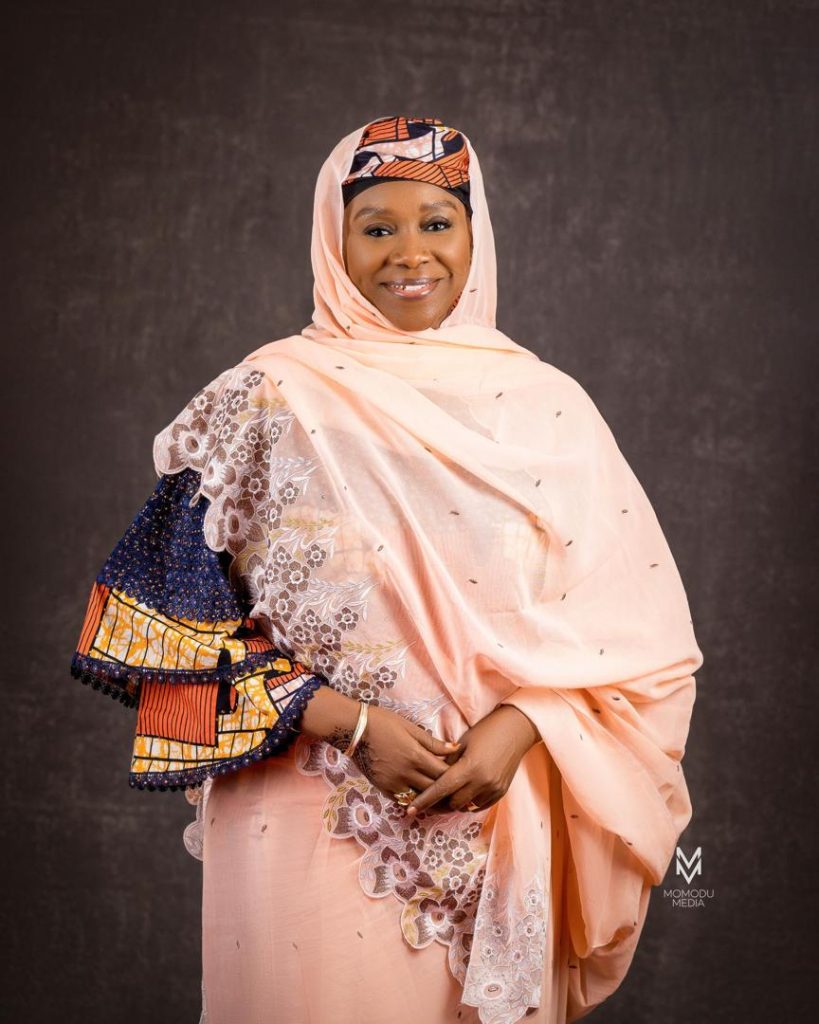
In this exclusive interview with one of the spectacular royals and public figures in Nigeria, Barrister Khadija Abdullahi Adamu, the Sarauniyar Lafia, our Senior Managing Editor, Pokyes Kavwam explores the roles of traditional institutions in leadership.
Can you briefly tell us about your title and the history behind it?
I am Barr. Khadija Abdullahi Adamu, the SARAUNIYAR LAFIA of Barebari. I am also the Founder of the Child Rights Foundation, Chairperson of the Board of Trustees for the Royal Women Empowerment Foundation Nasarawa State, and Chairperson of the Board of Trustees for the Association of Women Traditional Title Holders in Nigeria.
When my husband became the first Executive Governor of Nasarawa State in 1999, the office of the First Lady was—and still is—not constitutionally recognized. This inspired the establishment of a Non-Governmental Organization: the Child Rights Foundation, in the year 2000. Registered with the Corporate Affairs Commission, its mission is to protect the rights of children, including the unborn, and to support those in disadvantaged conditions while actively campaigning against child abuse.
During an advocacy visit to the late Emir of Lafia, Alhaji (Dr.) Isa Mustapha Agwai I, on June 20, 2005, I was honoured with the traditional title of SARAUNIYAR LAFIA. ‘Sarauniya’ translates to ‘Queen’ in Hausa—a title that symbolizes high esteem and respect. This year, 2025, marks the 20th anniversary of that honour.
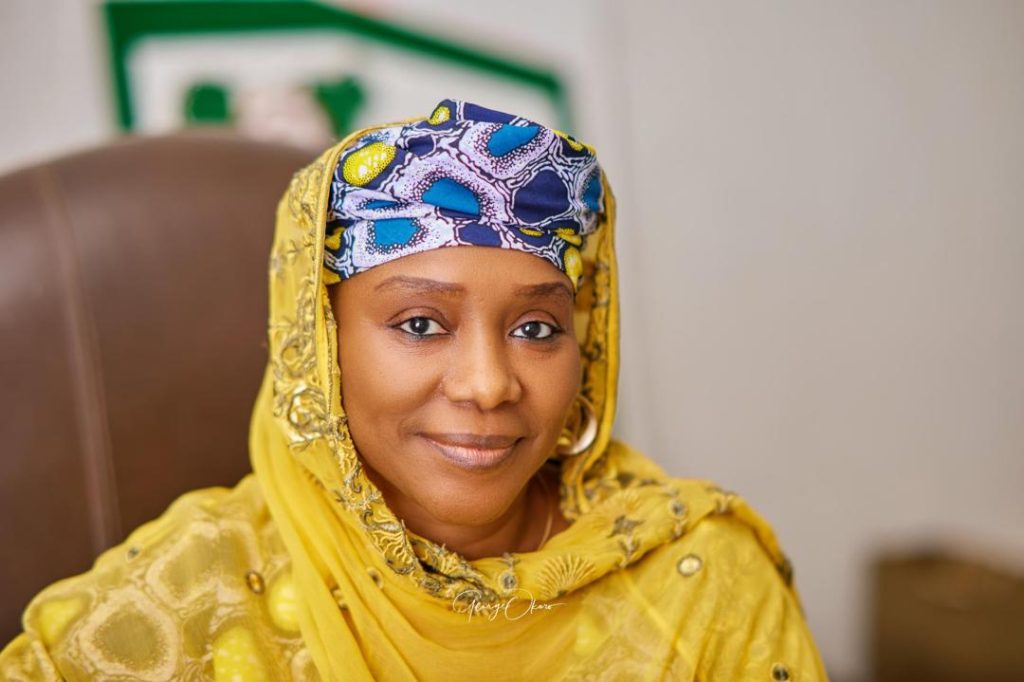
What inspired your involvement in traditional leadership as a woman in contemporary Nigeria?
In today’s Nigeria, women are increasingly taking on traditional leadership roles due to evolving societal norms, historical precedents, and a personal drive for change. For me, the strongest inspiration was the desire to make a meaningful impact. I envisioned using my role to champion social change, promote gender equality, and inspire younger generations.
How do you define the role of female traditional rulers today—beyond the ceremonial?
Female traditional leaders now go far beyond ceremonial roles. We advocate for the rights of women and children, promote education, and participate actively in political and economic spheres. We are vital players in preserving culture and influencing key decisions that affect our communities.
What are some practical ways you and your colleagues impact your communities?
Our contributions are deeply rooted in grassroots development. We economically empower women, engage in healthcare advocacy, and support local projects. Through the Child Rights Foundation, we’ve awarded scholarships to both boys and girls, provided school uniforms to orphans, taught women vocational skills, and raised awareness about human rights, particularly for women and children.
In what ways do your responsibilities intersect with advocacy for women and girls?
As traditional title holders, our roles align closely with advocacy work. We promote women’s rights and push for equal access to education, healthcare, and economic opportunities. We also raise awareness and organize efforts to combat gender-based violence, end child marriage, and support female mentorship and empowerment.
How have traditional structures responded to the presence of women leadership—has it been supportive or resistant?
The response is a mixture of both support and resistance. While many traditional leaders now recognize and support women’s leadership, there are still cultural and social barriers in some areas. Women’s participation in decision-making is increasing, but challenges remain, especially in communities where traditional authority is perceived as male-dominated.
Why is preserving traditional leadership, especially its feminine dimension, crucial to Africa’s identity?
Preserving traditional leadership—particularly its feminine aspect—is vital to maintaining Africa’s cultural richness. It helps foster unity, resolve conflicts, uphold historical traditions, and promote gender balance. Recognizing the roles of women in leadership ensures that Africa’s heritage is fully represented and its communities empowered.
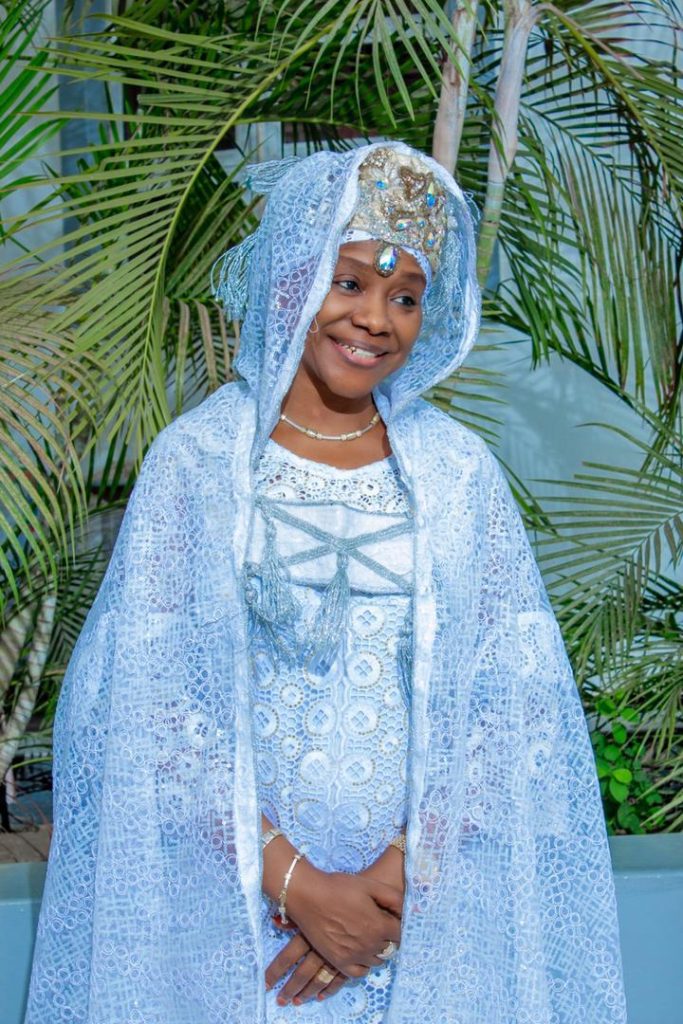
How do you navigate the tension between modern governance systems and traditional authority?
By respecting the cultural significance of traditional authority while embracing modern governance values. Open dialogue, capacity building, and community engagement are key. We aim for a balanced approach that allows for collaboration between both systems in pursuit of community development and effective governance.
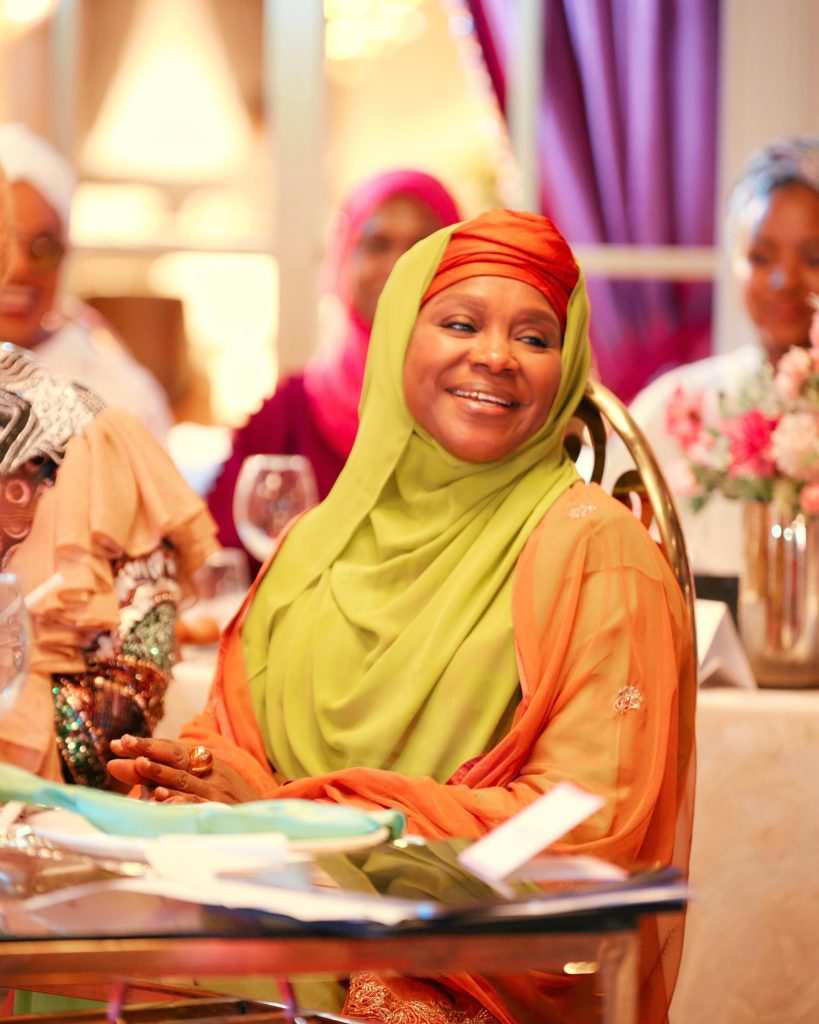
What are some unique cultural values or practices that your position as a female traditional leader helps protect or promote?
I help uphold values such as empathy, unity, and intergenerational knowledge transfer. I also promote education for girls, support women’s roles in development, and encourage inclusive decision-making that prioritizes the well-being of the entire community.
What message do you want to pass on to young African women about leadership, tradition, and voice?
To every young African woman: take charge of your life and education. Speak up and use your voice to inspire change. Believe in your strengths and support one another. Be agents of transformation—your voice and your presence matter deeply to the future of our continent.

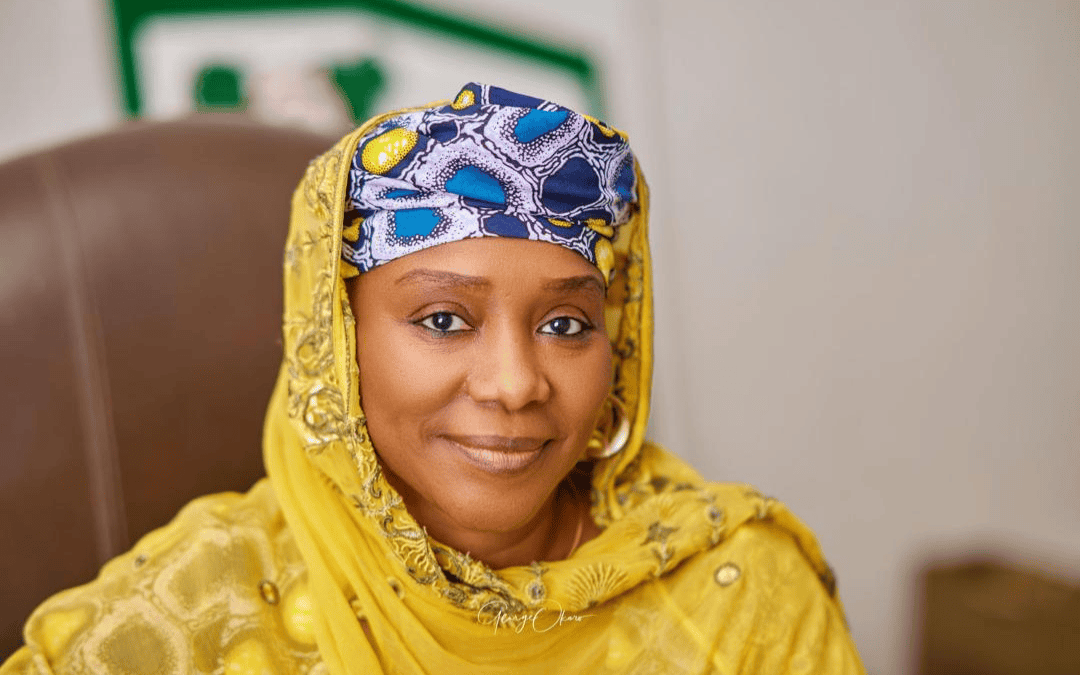
0 Comments